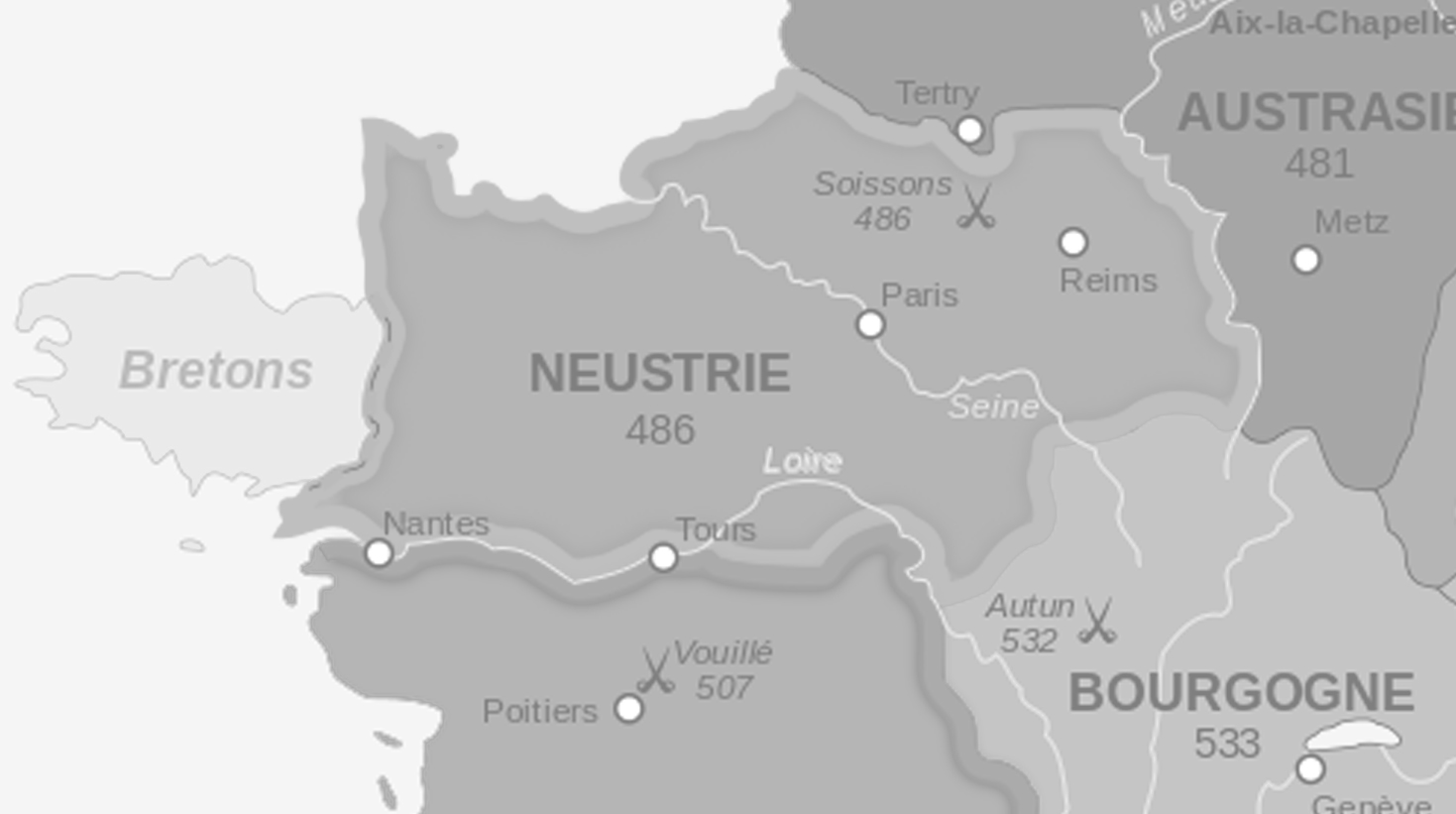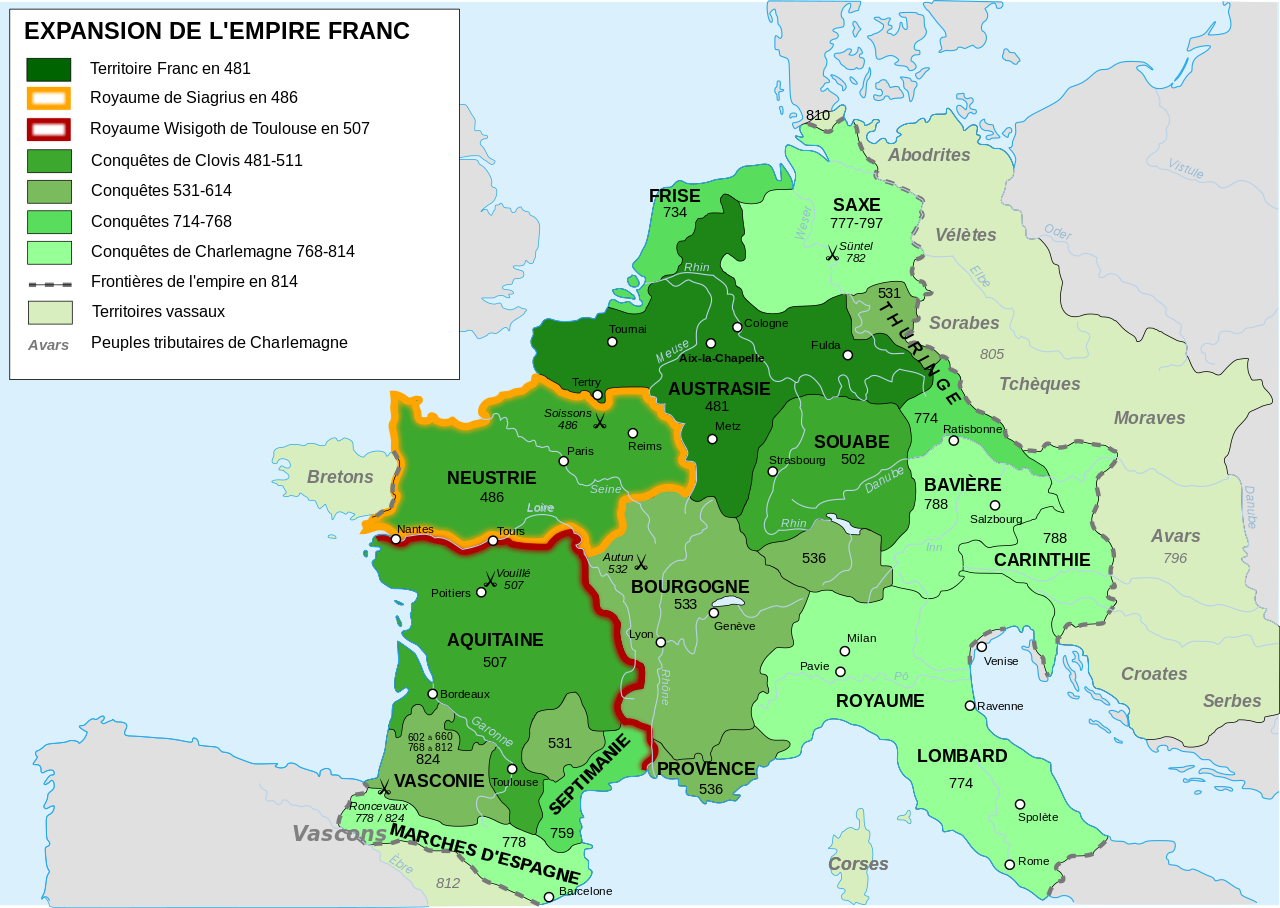Neustria is the name of the Frankish kingdom made up of the north-western territories governed by the Franks. During the Merovingian period, the southern border was the banks of the river Loire and the north-eastern border was the banks of river Scheldt or of the river Somme. The lands of Nantes, Rennes and Vannes were part of this kingdom.
Neustria inherited its lands from the ancient Gallo-Roman kingdom of Syagrius, which had been conquered by the king of the Franks, Clovis, in 486. His son Chlothar I died in 561 and the Regnum Frankorum was divided up amongst his four sons. Chilperic I inherited the kingdom which became known as Neustria. The other three great kingdoms were Austrasia to the north-east, Burgundy to the south-east and Aquitaine to the south-west. There was an immediate conflict between the rulers of Austrasia and Neustria. Several kings, including Chlothar II and Theuderic III reigned over the kingdom of Neustria, but at the end of the 7th century, the Austrasians gained the upper hand.
During the Carolingian period, Neustria was no longer a kingdom, though its name persisted, restricted in use to the lands between the Seine and the Loire rivers. In the 8th century, a militarised borderland known as the March of Brittany, was established at Neustria’s western frontier in order to contain the Bretons, after Pepin the Short conquered Vannes in 753. The most well-known governor (or Marquess) of the March of Brittany is Roland, but it was mainly dominated by the Widonides, a Frankish family descended from the Counts of Nantes.
Throughout the second half of the 9th century, the Bretons conquered a large part of the west of Neustria. The Norsemen settled in the north of Neustria, in what would later become Normandy. Due to hostile pressure from both sides, the Frankish kings built two marches in Neustria, one to contain the Normans and the other to contain the Bretons. The last ruler of the Norman March, Berengar, may have been the grandfather of Juhel Berengar, Count of Rennes and ally to Alan Wrybeard who reconquered Brittany. The Neustrian March to contain the Bretons was governed by the Robertians, ancestors of the Capetians.



